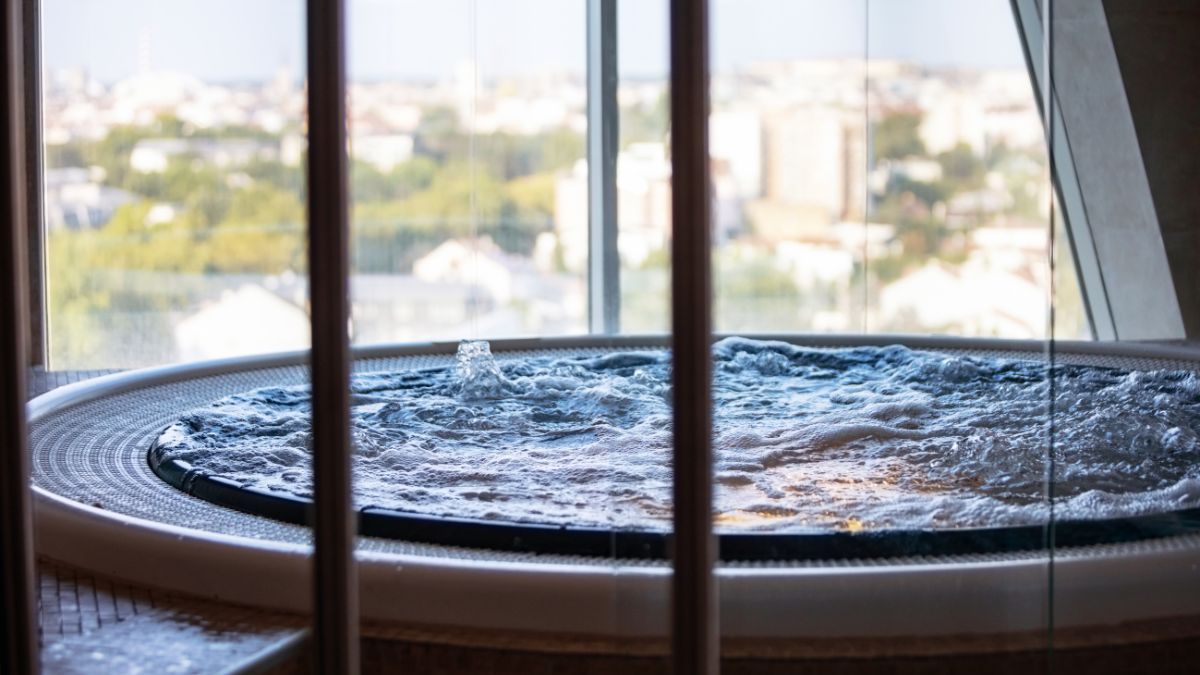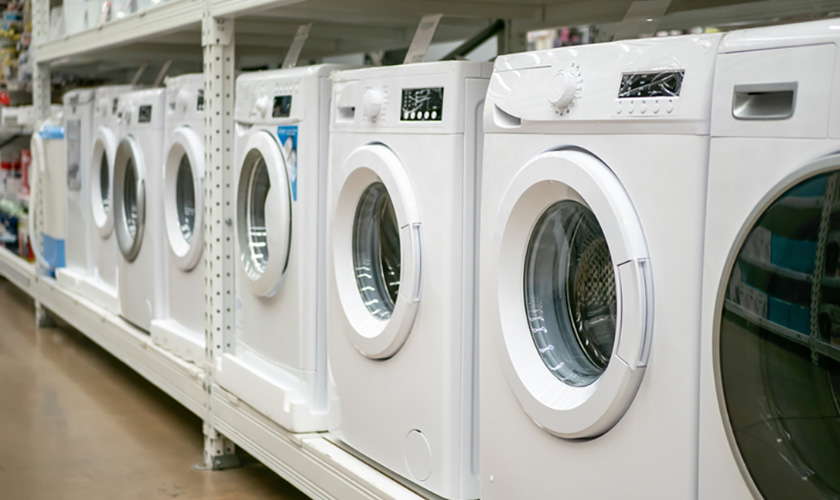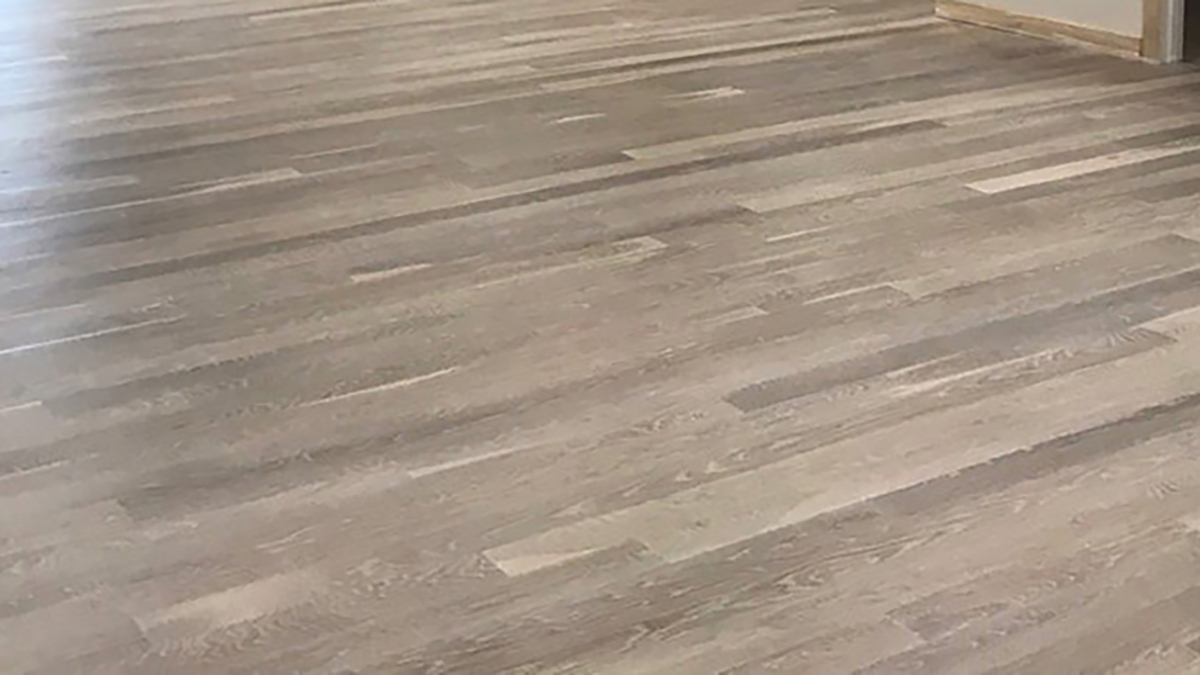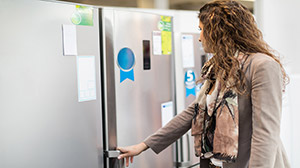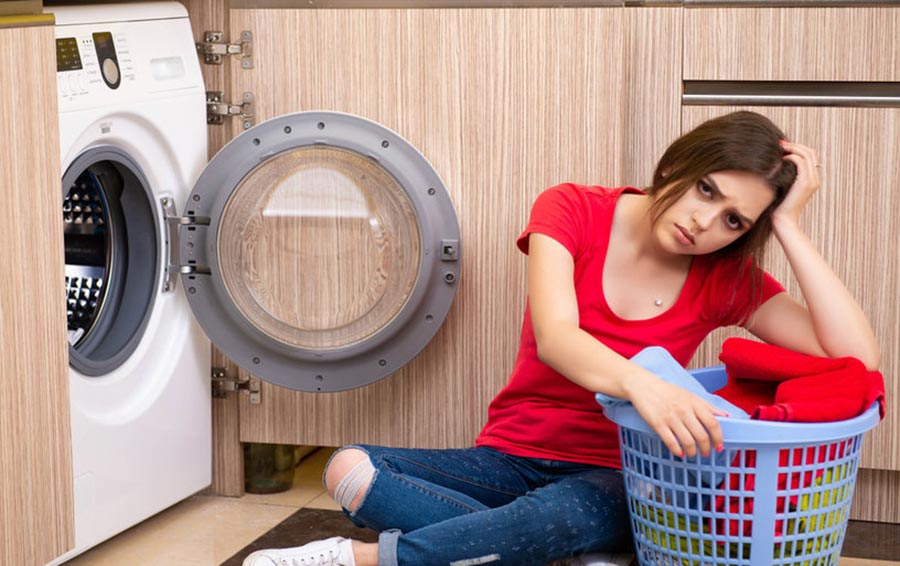
Most homeowners take their hot water for granted. But what if your water heater suddenly breaks down and you have to get by with cold water only? In this blog post, we’ll explore some ways that you can use a washing machine without any hot water. Keep reading to learn more!
A clothes washer can work with no hot water, but it won’t heat the water. You’ll need to do laundry on the cold cycle and use a cold-water detergent. Some bargain brand detergents won’t clean well in cold water alone.
Modern washers are capable of washing in cold water only, but you’ll need to be mindful of the detergent you use. The enzymes found in many powder detergents can begin to operate at temperatures as low as 60 degrees Fahrenheit, and liquid detergent works even better in cold water.
Whether your water heater is not producing hot water or you want to save money on hot water consumption this article is for you!
Can You Wash Clothes with No Hot Heater?
If your water heater is broken it’s not heating water as it should. However, you can still do a load of laundry. You will need to use cold water only and a detergent suitable for cold water washes. Some detergents won’t dissolve in cold water, so be sure to check the label before purchasing. Load size also affects how well cold water cleans.
You can also use the laundromat to do your laundry if you don’t have a working washer at home. Most laundromats have machines that can handle both hot and cold cycles, so you can still wash your clothes using this method. Just be prepared to spend a little extra on electricity or gas bills.
No matter what option you choose, always read the care instructions on your clothes tags before laundering them. Different fabrics can be damaged if washed in the wrong type of water. For example, wool can shrink if washed in hot water, and cotton can become stiff and rough if it’s laundered with cold water. So always be sure to do your research before starting a wash cycle!
Does My Washing Machine Heat Water?
The majority of washing machines do not heat their water. While dishwashers have a heating element that is primarily used for drying dishes, washing machines do not have a heating element for on-demand water heating.
They have a cold and hot water valve from where they get their water from. If your washing machine attempts to draw hot water from the water heater and gets cold water, it will only wash your clothing in cold water. That wouldn’t be an issue unless you needed to wash those clothes in hot water.
However, if your water heater has a major leak or any other form of blockage that prevents it from delivering water to the washer, you should not use your washing machine. For safety’s sake, your water main should be shut off in the event of a leak. In the case of a clog, you may destroy your washing machine if it attempts to wash clothing with insufficient or no water.
Some washing machines contain an internal water heater and heat their water. Some off-grid living situations where you may not always have access to hot water. Others produce steam to clean stains from clothes more effectively. If your washing machine heats its water, double-check with the user’s manual to be sure. There should be no problem using it if your water heater is out because it can use the cold water input.
If you’re not sure if your washing machine heats its water, please consult the user’s manual or contact the manufacturer. You can also find more information on this topic by visiting our website at washerhelp.com. We are here to help!
What Can You Wash in Cold Water?
Don’t be too concerned if you can only use the cold-water wash cycle. Most clothing can be washed safely in cold water. Today’s detergents can achieve the same degree of cleanliness on cold cycles as they do with hot water.
There are some benefits to washing in just cold water, including protecting the vibrancy of your clothing, avoiding shrinking, and preventing dyeing of whites and lighter colors. Cold-water washing means that your clothing will not shrink or fade and that it will last longer.
Most clothes and other objects that you can safely put in the washer are fine with cold water. It can get rid of stains from clothing, including grass stains on your children’s jeans, makeup smears on shirts, and heavily-soiled work clothes.
Fabrics with a delicate feel (lace and silk) and dark, vivid ones (cotton, hemp, linen) actually do best in cold water.
When Hot Water Washing is Preferred
However, on certain fabrics or for special requirements, warm or hot wash cycles work best. The ease with which you can wash knit and synthetic textiles (such as spandex, nylon, polyester, and rayon mixes) depends on the temperature of the water.
Warm water does not always remove stains. Blood and perspiration, for example, can become entrenched in the fabric when washed in hot water. Hot water also tends to shrink, fade, and crease certain textiles.
Washing clothing and bedding in hot water can help prevent the spread of germs if sanitizing is the aim—for example if you or someone in your family is sick.
Water hardness, mineral content, and other factors may also impact how well detergent works. In cold climates, where tap water is typically 40°F or colder in winter, detergents may not function effectively. Warm or hot water might be required to raise the water temperature.
There are some clothes that you should wash in hot or warm water.
- White clothes
- Undergarments and dirty cloth diapers
- Towels and wash clothes
- Sheets, comforters, and other bedding items
- Any cloth item used when sick
- Clothing stubborn stains like blood, wine, or grass
Washing Clothes Without a Water Heater
Will a washing machine function if the hot water heater has failed? Water heaters often fail due to a bad heating element. A heating element failure is relatively easy to fix, but you may have to wait for a plumber unless you tackle the job yourself. Tankless water heaters are more complicated and may require a part to be ordered to make a successful repair.
A failed water heater does not obstruct water flow to the washing machine. However, if you need to wash in warm or hot water, the washer won’t work as intended using only cold water. On the other hand, you might discover that you can still obtain excellent results with washing in cold water.
While you may be able to operate your washing machine while your water heater is down, you should wait if you’ve called for repairs. Your plumber may need to turn off your water during the repairs. Your water heater should have a water shut-off valve at the cold water inlet to isolate and work on the water heater.
The water flow to the washer’s hot water inlet is off when working on the water heater. You can still select to wash clothes on the cold water cycle.
However, they may need to turn the water off to the house, which means you’ll need to wait to wash dirty clothes.
Can You Bypass the Hot Water on a Washing Machine?
You’ll find a (blue) cold water hose and a (red) hot water hose connection on the back of the washing machine. Since washing machines do not heat water, they need a hot water tap supply.
If you’re set on washing clothes without hot water, you can connect a Y hose connector on the cold water tap. Then connect both hoses to the Y connector. Leave the hot water tap off.
Modern washing machines have evolved, as have laundry detergents, and you no longer need to use hot water to clean most clothing. You’ll save money by washing clothes in the cold cycle. Even though they require less water, today’s washers are far superior at cleaning than top-loaders with a center agitator dating back 15 years or more.
Sources


